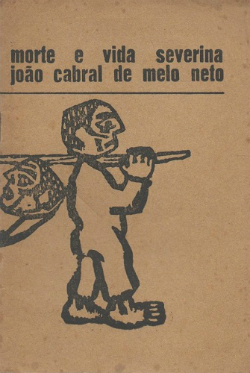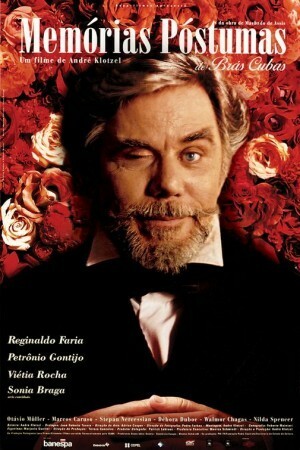Claro Enigma is a work composed of 42 poems. It dates back to 1951 and is written by Carlos Drummond de Andrade, a Brazilian modernist writer.
Inserted in the Third Phase of Modernism, known as Post-Modernist, it was written in the late 1940s. It is located in the historical period in which the Cold War began.
It is taking into account this context that Drummond transmits melancholy in what is his eighth work.
In it, the author returns to the classic form, abandoning the freedom of creation, one of the main trends of Modernism.
Summary
The 42 poems in the book are divided into six parts:
I - Between Wolf and Dog
Composed of 18 poems, in this part the poet proposes the paradox between the evil of the wolf and the goodness of the dog.
Sonnetilho of False Fernando Pessoa
"Where I was born, I died.
Where I died, I exist.
And the furs I wear
there are many that I have not seen.
without me like without you
I can last. I give up
of everything mixed
and that I hated or felt.
Neither Faust nor Mephisto,
to the laughing goddess
of our oarist,
here I say: I watch
beyond, none, here,
but it's not me or this."
II - Love News
The second part has 7 poems that deal with love essential for life, genuine love, not romantic love.
"What can a creature fail,
among creatures, love?
love and forget,
love and malamar,
to love, unlove, love?
always, and even with glazed eyes, to love?"
(Excerpt from Love)
III - The Child and the Men
In the third part there are 4 poems. In them Drummond pays homage to the poets Mário de Andrade, Manuel Bandeira and Mário Quintana.
"The poet's lovers, down there, on the bend in the river, milk themselves in a slow pavana, and one by one, acid drops disappear into the poem. Is it so many years ago, was it yesterday, was it tomorrow? Cryptographic signs are engraved in the eternal sky – or on the table in an abolished bar, while the poet Mário Quintana silently travels over the marble."
(Excerpt from Quintana's Bar)
IV - Seal of Mines
There are 5 poems in the fourth part of the work, whose theme is Minas Gerais, the state where the author was born, and his family.
In this part, therefore, the poet takes us back to his past.
"The church was big and poor. The altars, humble,
There were few flowers. They were garden flowers.
In the dim light, in the carved shadow
(which images and which faithful ones?)
we were."
(Excerpt from Marian Evocation)
V - The closed lips
The fifth part consists of 6 poems. The motto is silence.
In it, the author talks about his family, especially about those who have passed away, so they are silent.
Despite not speaking anymore, these relatives are still part of his life. After all, the family is one of the main influencing factors in people's lives.
"My father lost time and gained in a dream.
If the night gives me the power to escape,
I feel my father right away and I put it on him
the look, reading his face, wrinkle by wrinkle."
(Excerpt from Meeting)
VI - The Machine of the World
In the sixth and last part there are only 2 poems, among which the one that was chosen as the best Brazilian poem of the 20th century.
It's called Máquina do Mundo and it makes reference to Camões, who mentions “the great machine of the world” in the corner X of Os Lusíadas.
Drummond conveys the idea that he will no longer use his machine, which is his poetry.
"And as I strode vaguely
a road in Minas, rocky,
and at the close of the afternoon a hoarse bell
mingled with the sound of my shoes
that it was paused and dry; and birds hover
in the leaden sky, and its black shapes
slowly if they were diluting
in the greatest darkness, coming from the hills
and of my own being disillusioned,
the machine of the world opened a crack
for those who already dodged to break it
and just having thought it was moaning.
It opened majestically and circumspectly,
without making a sound that was impure
not a glare greater than tolerable
by the pupils spent on inspection
continuous and painful of the desert,
and by the mind exhausted from menting."
(Excerpt from The Machine of the World)
Next, the book ends with the poem Relógio do Rosário.
Analyze
The book conveys the poet's sadness and frustration due to the historical context.
Drummond takes up the classic style, giving importance to meter, instead of using free verses.
In Claro Enigma we detect an inherent characteristic of the Baroque style, fusionism, which is the exposure of contrary ideas.
The title of the work is the most striking example of this. Clear Enigma reflects contrast, since clear is something that is easily understood, while an enigma is something difficult that needs to be deciphered.
Read too Carlos Drummond de Andrade and Postmodernism.
Exercises
1. (ITA 2005) The book "Claro Enigma", one of the most important works by Carlos Drummond de Andrade, was published in 1951.
This book contains the following poem.
Memory
love the lost
leaves confused
this heart.
nothing can forget
against the nonsense
appeal of the No.
the tangible things
become insensitive
to the palm of the hand.
But things ended,
much more than beautiful,
those will stay.
(ANDRADE, Carlos Drummond de. "Claro Enigma", Rio de Janeiro: Record, 1991.)
About this text, it is correct to say that
The. the passage of time ends up erasing practically all human memories from memory; almost nothing remains.
B. each person's memory is uniquely marked by those facts of great emotional impact; everything else is lost.
ç. the passage of time erases many things, but affective memory records the things that emotionally matter; these remain.
d. the passage of time affects human memories in the same way that it ages and destroys the material world; nothing remains.
and. man has no alternative against the passage of time, for time erases everything; memory can do nothing; everything is lost.
Alternative c: the passage of time erases many things, but affective memory records the things that emotionally matter; these remain.
2. (PUCCAMP 2010) Renaissance values, such as the power of rationality, and the dramas of modern conscience, which do not lack the sense of a historical impasse, come into conflict in "A Máquina do Mundo", by Carlos Drummond de Andrade, since in this monumental poem by Claro enigma the author
The. explores the limits of the dramatic lyricism of an Oswald de Andrade.
B. proposes to investigate the nationalist projects of Mário de Andrade.
ç. it divests itself of historical consciousness in order to enhance the freest fantasies.
d. ridicules his fate as a sentimental and out of place man in the world.
and. he meets absolute reason with the melancholy conviction of an individual.
and. he meets absolute reason with the melancholy conviction of an individual.


